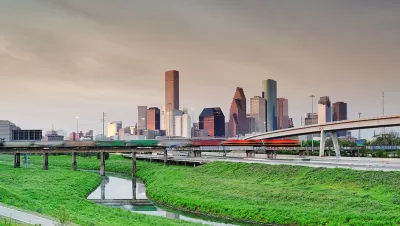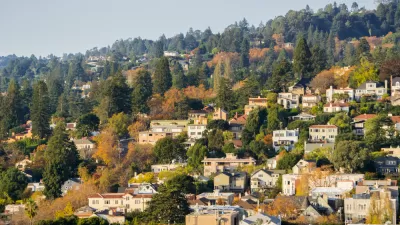States regulate local governments too much in some areas, but not enough in others.

Generally, states limit local governments' means of raising tax revenue. Both Democratic and Republican governors consider it their duty to micromanage the property tax rates of local governments, and local governments can rarely institute a new type of tax without state consent. On the other hand, local governments tend to have free rein in land use matters; even relatively activist state governments tend to allow cities to choke off housing supply without state interference. Is this really the right way to do things?
Just as we ask ourselves, "When does the state have any business interfering with individual rights?", we should also ask ourselves, "When does the state have any business interfering with a municipal government?" And just as states are most likely to get involved where an individual hurts other individuals, a state should be most willing to get involved where a city's action affects people living outside the city—for example, the "tragedy of the commons" situation where a policy is rational for each individual city, but is not rational for the region as a whole.
Applying this principle, I am not sure why states should limit municipal taxing powers. When a city raises taxes, it only hurts itself, because it takes the risk that people will flee that city in search of less restrictive cities. And if several cities and towns in a region raise taxes, such tax increases become even less rational for a town that refuses to raise taxes, since that town can gain residents by being a tax haven.
By contrast, environmental issues are especially well suited for state (and for that matter, federal) regulation, because one city's policies might harm residents of nearby municipalities. For example, suppose that a suburb allows unlimited development of wetlands within its borders. If the absence of wetlands causes increased flooding, the resulting damage may cross municipal borders and harm residents of nearby towns. Or if a suburb decides to build high-speed stroads and starve public transit so that its jobs are inaccessible by public transit, reverse commuters in other municipalities will have to drive to reach those jobs, causing pollution not just in the suburb in question, but also in their own neighborhoods. Thus, states should be responsible for wetlands regulation, and should perhaps play some rule in ensuring that suburban employment centers are transit-accessible.
What about zoning? It might, at first glance, seem that a community that chooses to radically limit new construction (as, for example, San Francisco has a habit of doing) only harms itself. But zoning might be a "tragedy of the commons" situation—where if each individual municipality does what is best for its existing citizens, it harms not just itself, but also the entire region. From the standpoint of an individual municipality's homeowners, restrictive zoning makes sense: constricting the housing supply raises property values, avoids the perceived externalities caused by new residents, and keeps out poor people who can't afford to pay for the town’s houses. By contrast, a town that fails to play the game of exclusion has lower property values and attracts more poor people, thus causing the town to have a smaller tax base and worse schools, thus making the town less desirable in all kinds of ways. So if enough cities overuse their power to zone, every other town in the region is forced to do the same or face ruin.
But when every town engages in restrictive zoning, housing prices throughout the region explode; the poor sleep on the streets, while the middle class moves to cheaper regions. In fact, the national economy may suffer: if an expensive region is one of the nation’s more productive regions, that region’s loss of talent may diminish national economic output by making it harder for businesses to attract non-wealthy employees.
In such situations, zoning becomes an all or nothing game: the only way for the state to prevent the regional and national harms resulting from high housing prices is to limit everyone’s capacity to zone.

Alabama: Trump Terminates Settlements for Black Communities Harmed By Raw Sewage
Trump deemed the landmark civil rights agreement “illegal DEI and environmental justice policy.”

Planetizen Federal Action Tracker
A weekly monitor of how Trump’s orders and actions are impacting planners and planning in America.

The 120 Year Old Tiny Home Villages That Sheltered San Francisco’s Earthquake Refugees
More than a century ago, San Francisco mobilized to house thousands of residents displaced by the 1906 earthquake. Could their strategy offer a model for the present?

Ken Jennings Launches Transit Web Series
The Jeopardy champ wants you to ride public transit.

BLM To Rescind Public Lands Rule
The change will downgrade conservation, once again putting federal land at risk for mining and other extractive uses.

Indy Neighborhood Group Builds Temporary Multi-Use Path
Community members, aided in part by funding from the city, repurposed a vehicle lane to create a protected bike and pedestrian path for the summer season.
Urban Design for Planners 1: Software Tools
This six-course series explores essential urban design concepts using open source software and equips planners with the tools they need to participate fully in the urban design process.
Planning for Universal Design
Learn the tools for implementing Universal Design in planning regulations.
Clanton & Associates, Inc.
Jessamine County Fiscal Court
Institute for Housing and Urban Development Studies (IHS)
City of Grandview
Harvard GSD Executive Education
Toledo-Lucas County Plan Commissions
Salt Lake City
NYU Wagner Graduate School of Public Service





























